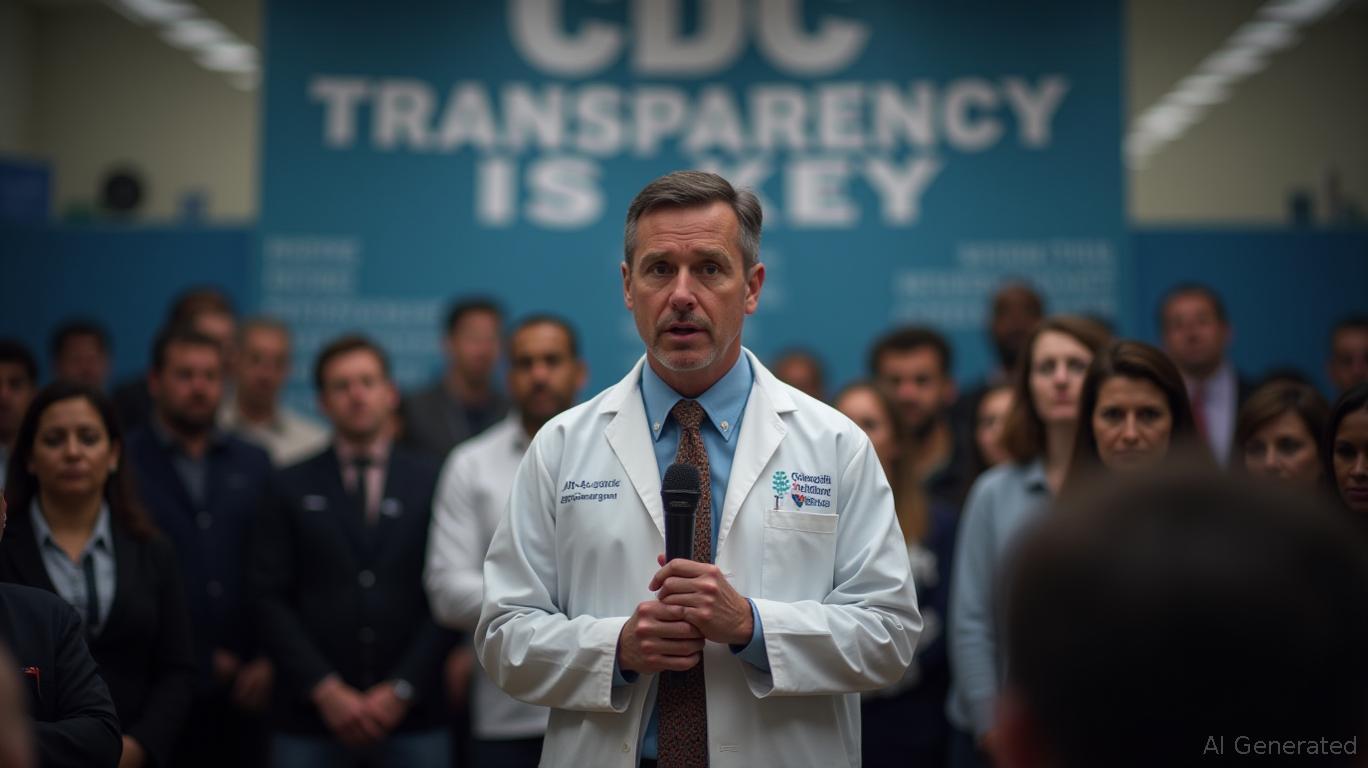A Scientist's Stand Sparks a Shakeup at the CDC
- CDC Director Susan Monarez was abruptly fired after refusing to comply with "unscientific" administration directives, marking the first Senate-confirmed CDC director to be removed. - Her removal coincided with CDC instability, including a deadly Atlanta headquarters shooting and HHS Secretary Robert F. Kennedy Jr.'s overhaul of vaccine advisory panels with known skeptics. - Major medical groups like ACOG and AAP continue advocating maternal/child vaccinations despite CDC's revised guidance, highlighting
CDC Director Susan Monarez was abruptly removed from her position just one month after being sworn in, according to a statement from the U.S. Department of Health and Human Services. Monarez, a federal government scientist, was confirmed by the Senate after the passage of a new law during the pandemic that mandated congressional approval for CDC director nominees. Her departure marks the first time a CDC director has been confirmed by the Senate for the role. President Donald Trump had previously withdrawn his initial nominee for CDC director, former Republican congressman Dave Weldon, after criticism over his views on vaccines.
The decision to remove Monarez reportedly came after she resisted directives from the administration that she deemed "unscientific and reckless," according to her legal representatives. In a public statement, Monarez's lawyers highlighted that she refused to "rubber-stamp" these directives, suggesting a potential clash with administration policies on public health guidance.
Monarez's exit occurs amid a period of heightened instability for the CDC. On August 8, a gunman attacked the agency's Atlanta headquarters, resulting in the death of a police officer. In the aftermath, Monarez canceled a scheduled meeting with CDC employees to address staff concerns about workplace safety and to restore confidence in the agency's internal protocols.
Her removal also aligns with broader shifts within the agency, particularly under the leadership of Health and Human Services Secretary Robert F. Kennedy Jr. In June, Kennedy replaced all 17 members of the CDC’s Advisory Committee on Immunization Practices (ACIP), which includes figures known for questioning the safety of vaccines. Recently, the CDC altered its guidance on childhood and maternal vaccinations, a move that has drawn significant criticism from prominent medical organizations such as the American Academy of Pediatrics and the American College of Obstetricians and Gynecologists.
The American College of Obstetricians and Gynecologists (ACOG) recently updated its guidance to continue recommending vaccinations for pregnant individuals against COVID-19, influenza, and RSV, despite the CDC’s revised stance. ACOG emphasized the evidence-based benefits of these vaccines in reducing severe illness, adverse pregnancy outcomes, and maternal mortality associated with infectious diseases. The organization cited clinical data in its recommendations, calling for strong support from healthcare professionals to counter vaccine hesitancy and misinformation.
The reconfiguration of the CDC’s vaccine advisory panel has sparked concerns among public health experts regarding the integrity and transparency of vaccine policy decisions. Retsef Levi, a member of the ACIP and a known critic of mRNA vaccines, was recently appointed to lead the CDC's COVID-19 immunization workgroup. Levi has previously questioned the safety of these vaccines and advocated for their removal, particularly for use in children.
The recent changes to the CDC’s leadership and advisory structure reflect a broader shift in public health policy under the Trump administration, one that has left many Americans confused about the reliability of official guidance on vaccination. Experts like Dr. Jeff Duchin from the University of Minnesota’s Center for Infectious Disease Research and Policy have noted that the inconsistent and sometimes contradictory guidance from government and professional organizations complicates public health messaging and may erode trust in health authorities.
As the flu and respiratory virus season approaches, the importance of vaccination remains a critical public health issue. While the CDC has retreated from recommending routine vaccination for pregnant women and healthy children, medical associations such as the AAP and ACOG continue to advocate for widespread vaccination to protect both mothers and infants from severe illness. Dr. Duchin and others emphasize the role of individual healthcare providers in guiding patients through the complex landscape of vaccine recommendations and in reestablishing trust through open and evidence-based dialogue.
Source:

Disclaimer: The content of this article solely reflects the author's opinion and does not represent the platform in any capacity. This article is not intended to serve as a reference for making investment decisions.
You may also like
Bitget Spot Margin Announcement on Suspension of DOG/USDT, ORDER/USDT, BSV/USDT, STETH/USDT Margin Trading Services
BGB holders' Christmas and New Year carnival: Buy 1 BGB and win up to 2026 BGB!
Bitget Trading Club Championship (Phase 20)—Up to 2400 BGB per user, plus a RHEA pool and Mystery Boxes
Subscribe to ETH Earn products for dual rewards exclusive for VIPs— enjoy up to 8% APR and share 30,000 USDT!